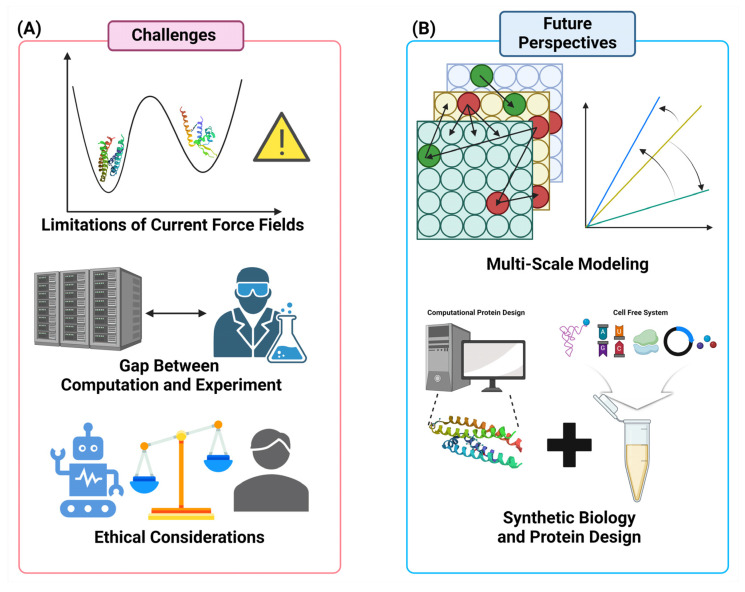Figure 7.
Challenges and future perspectives in computational approaches to protein engineering applications. (A) Current force fields have limitations in accurately capturing changes in electrostatic interactions, which impacts the accuracy and reliability of simulations. Integrating computational tools with experimental validation is essential for enhancing the accuracy and efficiency of protein design. Ethical issues related to bias, transparency, and accountability arise in the application of AI in protein engineering. (B) The integration of multi-scale modeling approaches is essential for understanding the complex dynamics of protein systems and developing proteins with new functions, and the advancement of these models holds great potential in the field of computational protein design. The combination of computational protein design and synthetic biology enables the development of innovative proteins.

